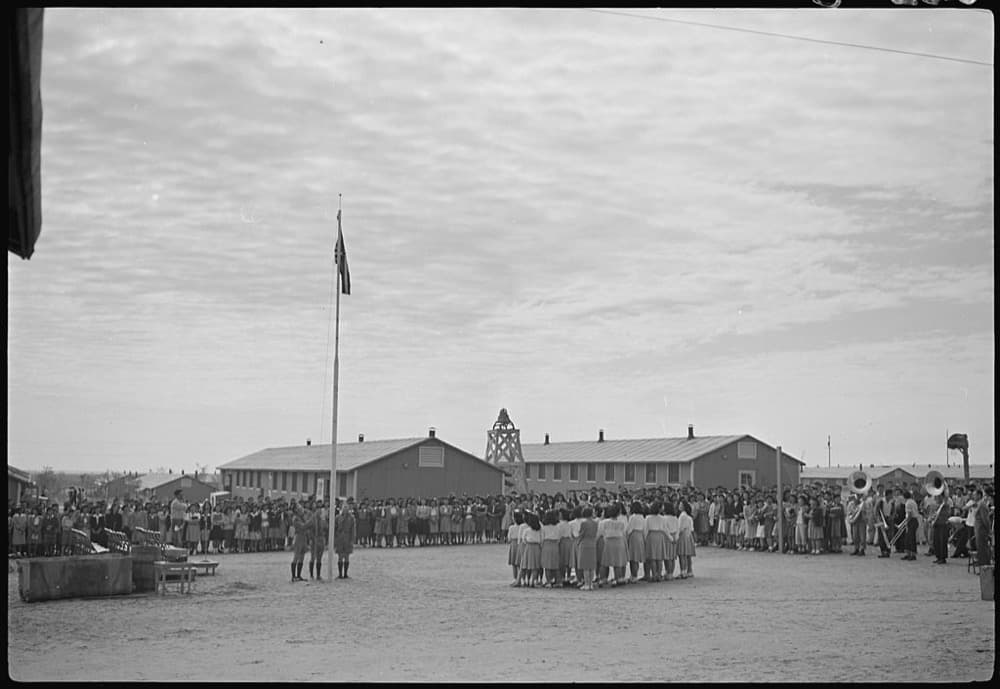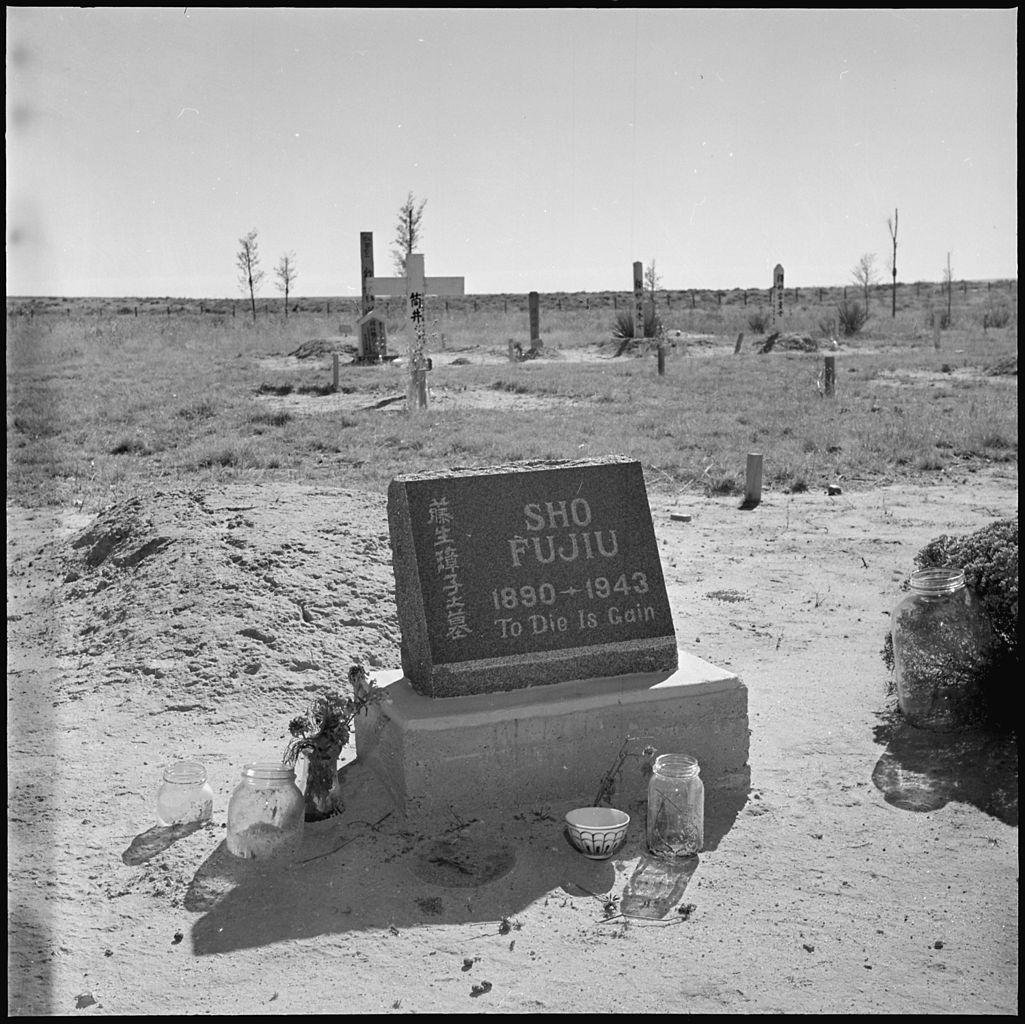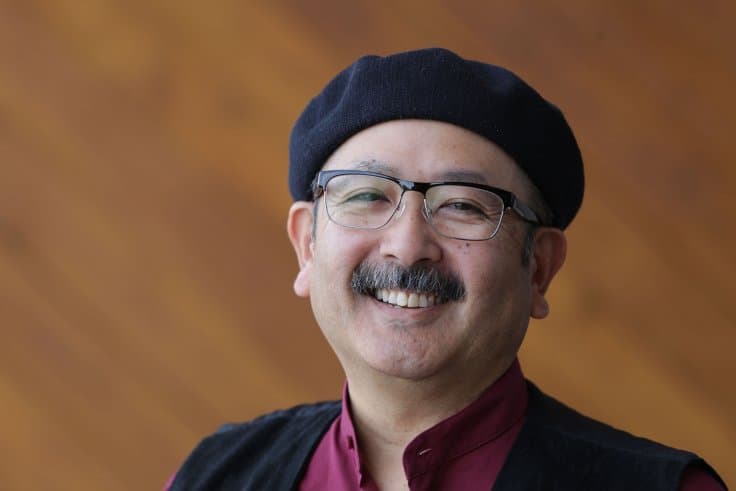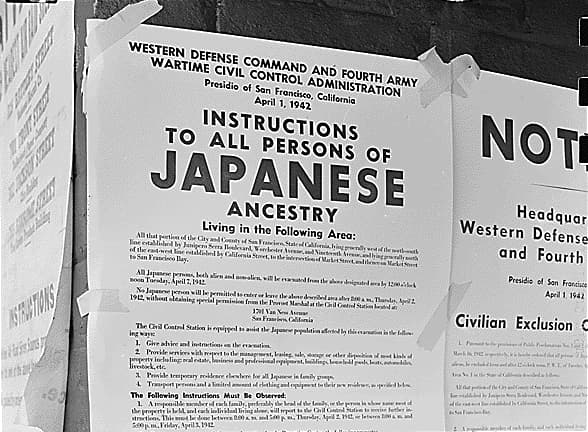What I've Learned
Denverite invites thoughtful people to submit op-eds about Denver. Get in touch at [email protected].
By Gil Asakawa, Special to Denverite
The slope just got a little slippery.
Carl Higbie, a former Navy SEAL who’s the spokesman for the Great America PAC supporting Donald Trump, was interviewed on Fox News’ “Kelly File.” The president-elect’s transition team is discussing plans for a registry for immigrants from Muslim nations, he said, adding that the historical precedents for such a registry included the imprisonment of people of Japanese heritage in “internment camps.”

(Note: We now call them concentration camps because that’s what they were, and that’s what the U.S. government called them back then.)
“We’ve done it with Iran back a while ago,” Higbie said, and “we did it during World War II with the Japanese.”
What?
To her credit, Fox News anchor Megyn Kelly called out Higbie, exclaiming in no uncertain terms, “You can’t be citing Japanese internment camps as precedent for anything the president-elect is gonna do!”
This idea isn’t new. It bubbled up last fall during the campaign, when candidate Trump told a TV reporter he supported creating a registry for Muslims, as an addendum to his statement that he would ban immigration of all Muslims. It’s apparently now part of Trump’s “extreme vetting.”
What’s next, requiring Muslims to have ID badges like Jews had to wear badges in Nazi Germany?
Would Muslims eventually be imprisoned like the 120,000 people of Japanese descent who were incarcerated after President Franklin Roosevelt signed Executive Order 9066 on Feb. 19, 1942? That order allowed the U.S. Army to remove anyone of Japanese descent (half of the population was born in the U.S., so they were American citizens) from the West Coast and place them in prison camps surrounded by barbed wire and guard towers, for reasons of military security. Many of these families lost their homes and business and farms.
Some ended up at Amache, the concentration camp in Southeast Colorado, outside the town of Granada, between Lamar and the Kansas border.
For decades, Japanese Americans have said “never forget,” and we mark that signing of EO 9066 every February 19 as a Day of Remembrance. In Denver, I'm a board member of the Mile High chapter of the Japanese American Citizens’ League, the country’s oldest Asian American civil rights organization. We will commemorate the 75th anniversary of EO 9066 next February 19 at History Colorado.
The theme of next year’s Day of Remembrance? The post-war resettlement of Japanese Americans in Colorado, and the continuing need to build bridges with the Muslim community.

Every year, on the Saturday before Memorial Day weekend, there is a pilgrimage from Denver to Amache.
It’s a sobering sight, the crumbling foundations of barracks that held 9,000 people at the camp’s peak. A water tank and a guard tower have been rebuilt; one of the tar-paper barracks serves as an equipment storage shed for a nearby Granada park. The site is desolate, mostly just blowing dust and tumbleweeds. The one bit of green is where the Denver Optimists Club built a memorial to the men who volunteered and fought for the U.S. in Europe for the famous 442nd Regimental Combat Team… even though their families were in Amache while they fought for our freedom.
There were nine camps in all, and Amache was the only one in Colorado. If you ever visit, you’ll understand why Japanese Americans feel a kinship to Muslims and Arab Americans. We know the sting of racism and how the government can legitimize such a mass act of hatred.
More than 40 years after EO 9066, President Reagan signed the Civil Liberties Act of 1988, which paid a pittance of reparations to survivors and offered an apology that admitted that the incarceration was because of racial hysteria and economic reasons, not national security.
In the days after the 9/11 attacks, a similar wave of hysteria took hold. Conservative commentator Michelle Malkin even wrote a book, “In Defense of Internment: The Case for Racial Profiling in World War II and the War on Terror.” She thought that locking up people of Japanese ancestry during WWII was justified.
But within days of 9/11 the Japanese American community was the first to raise its collective voice in solidarity with Arab Americans, when hate crimes spiked and a Sikh man was murdered just because he wore a turban to show piousness for his South Asian religion.
A registry is the start of a slippery slope, as Megyn Kelly pointed out in her interview with Carl Higbie. Ask the Jewish community. Ask the Japanese American community. Ask Muslims. Registry can lead easily into much, much worse.

Gil Asakawa is a writer and speaker and the author of “Being Japanese American” (Stone Bridge Press, 2015) who blogs at www.nikkeiview.com.
Denverite invites thoughtful people to submit op-eds about Denver. Get in touch at [email protected].













